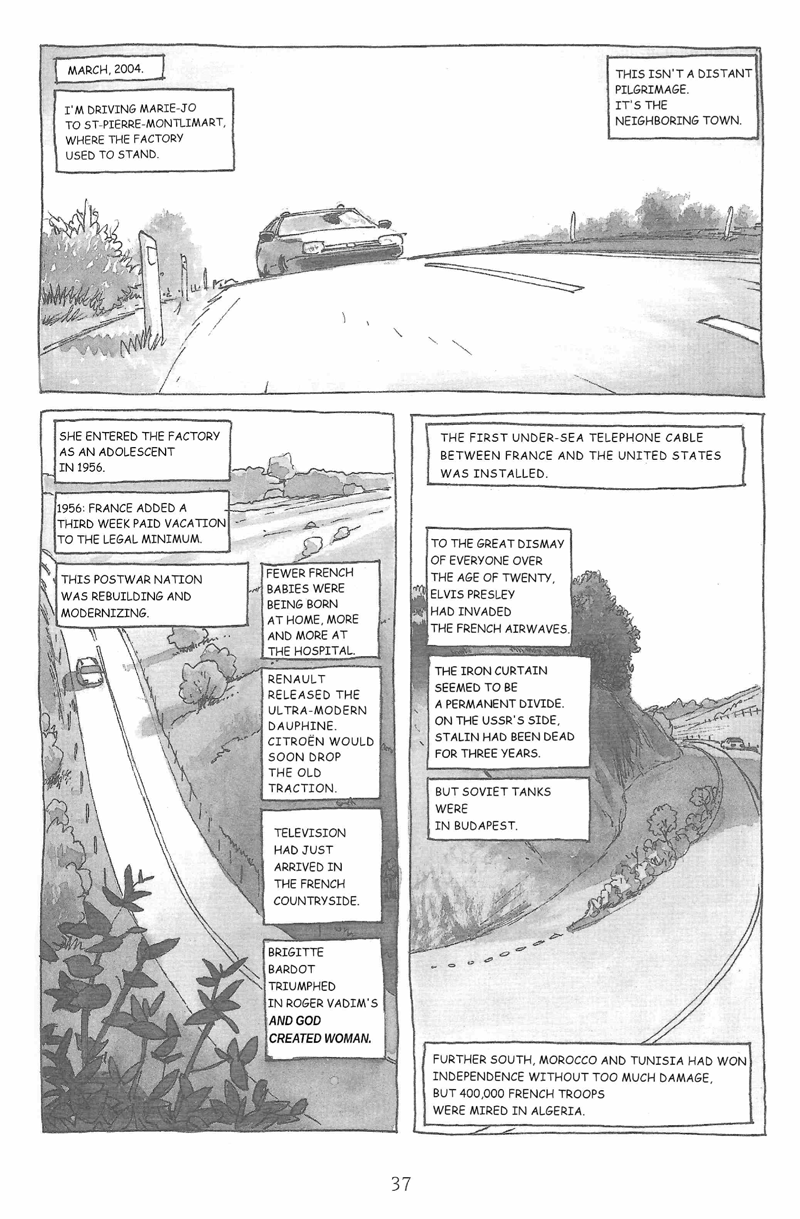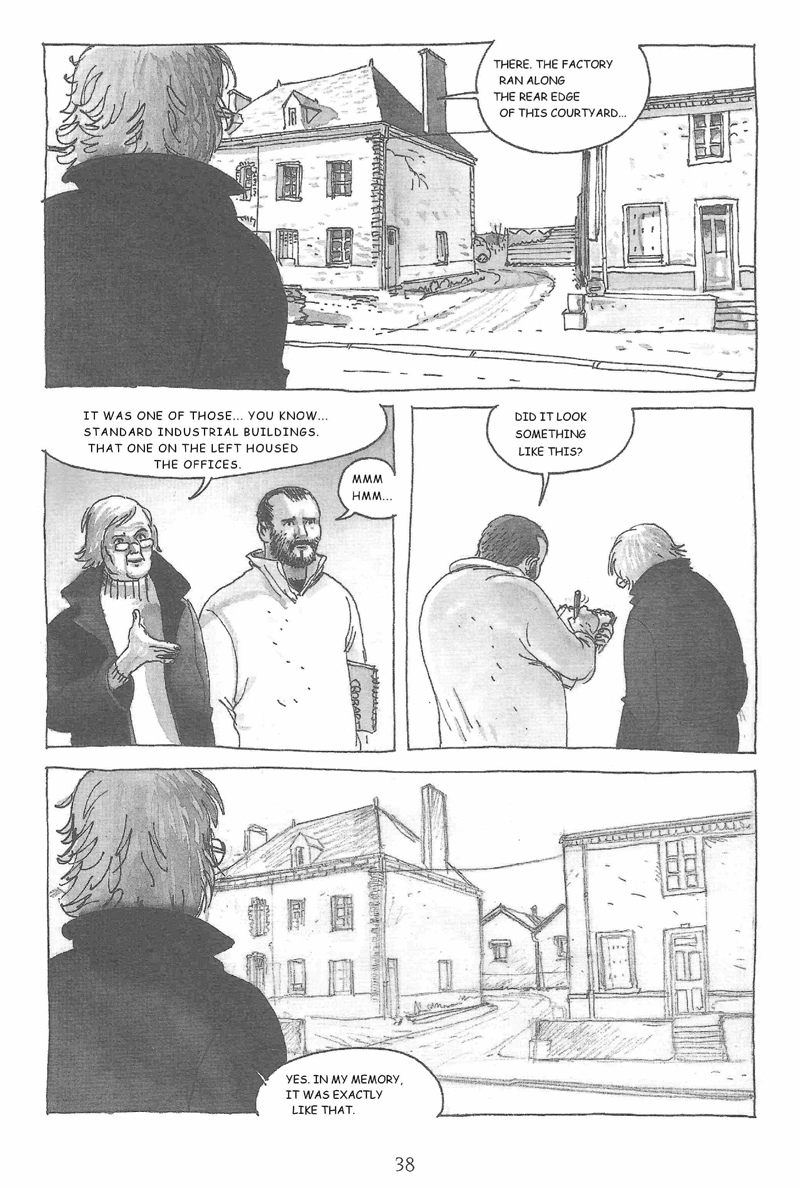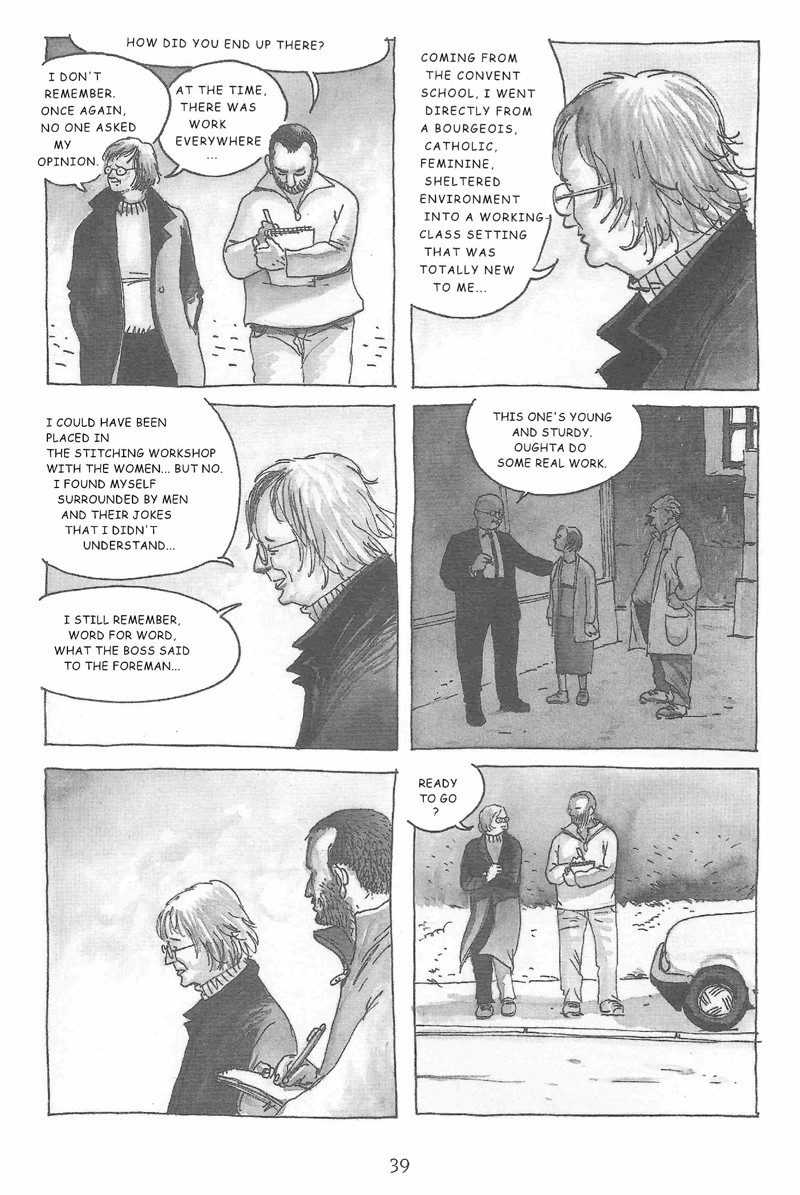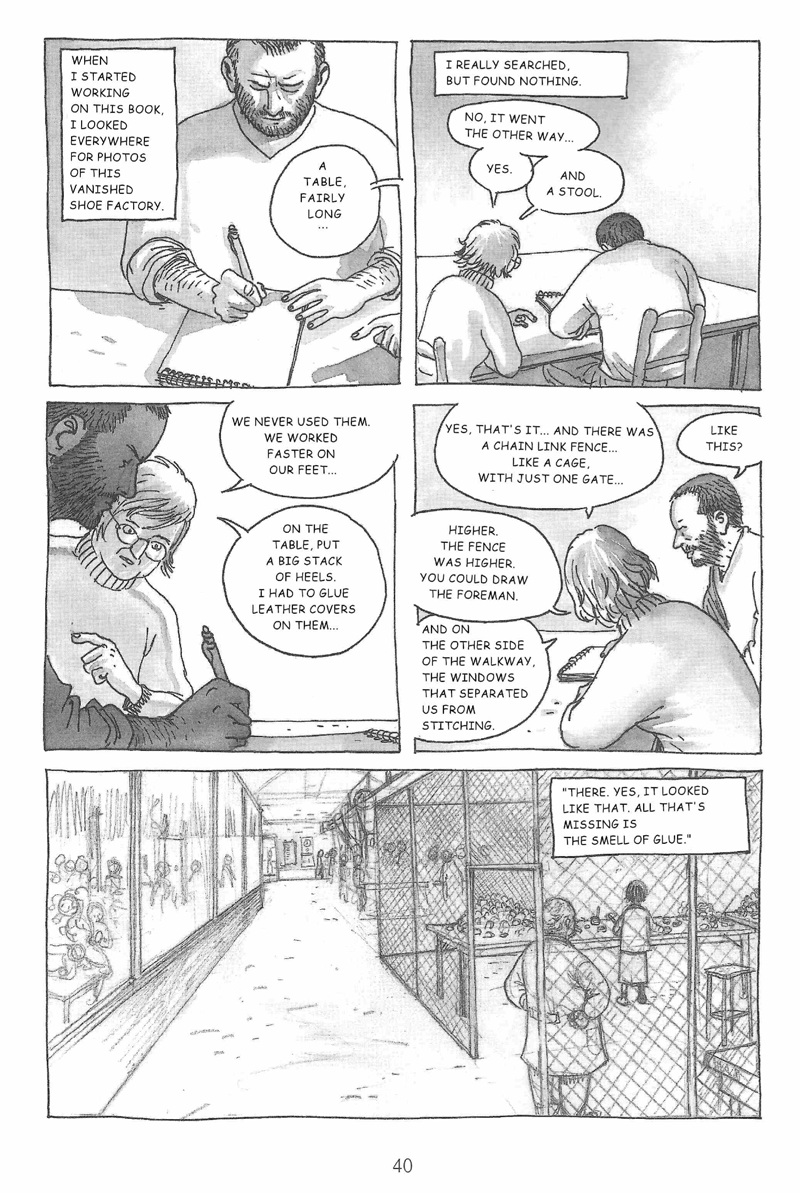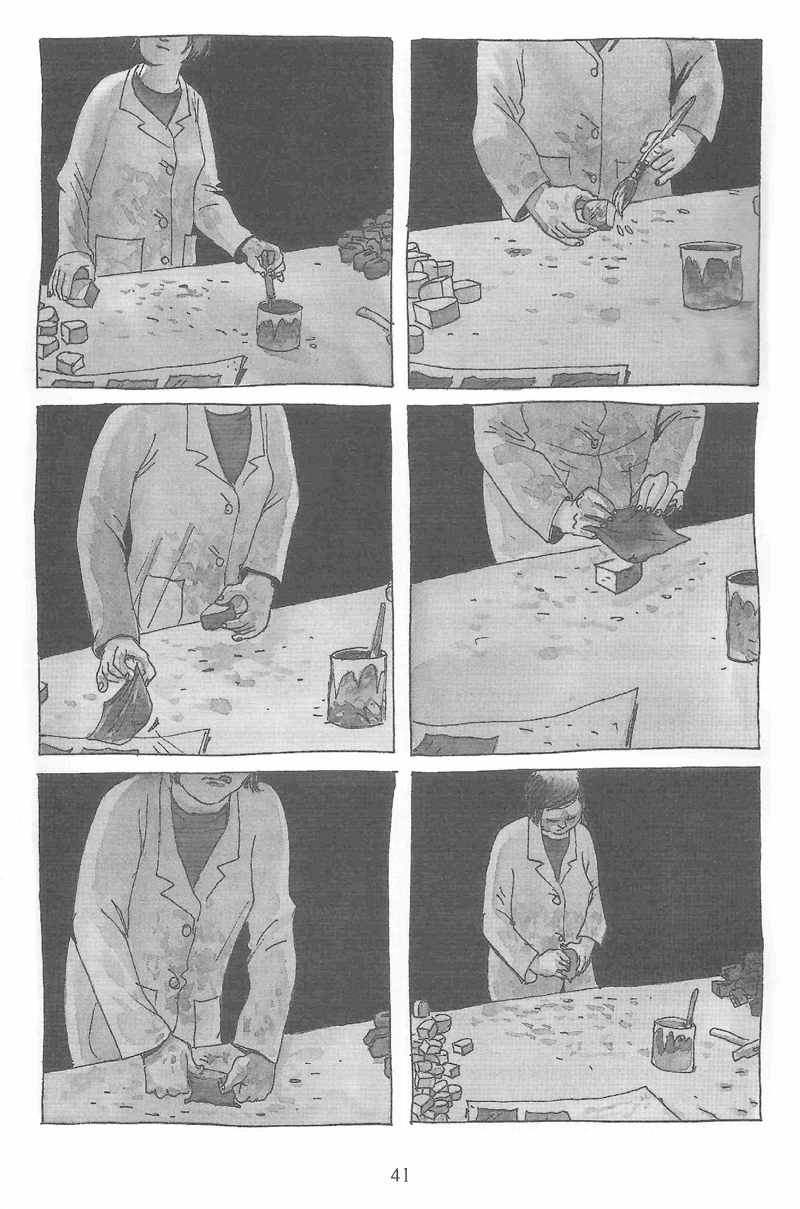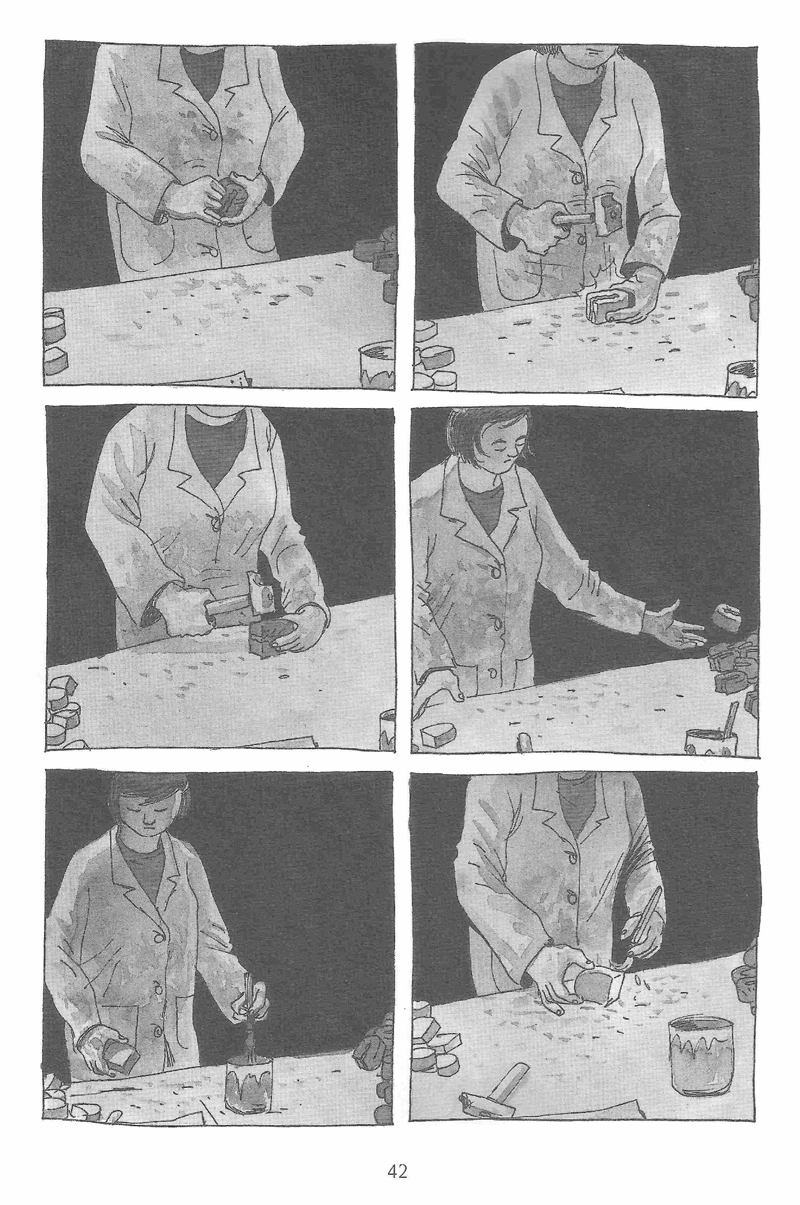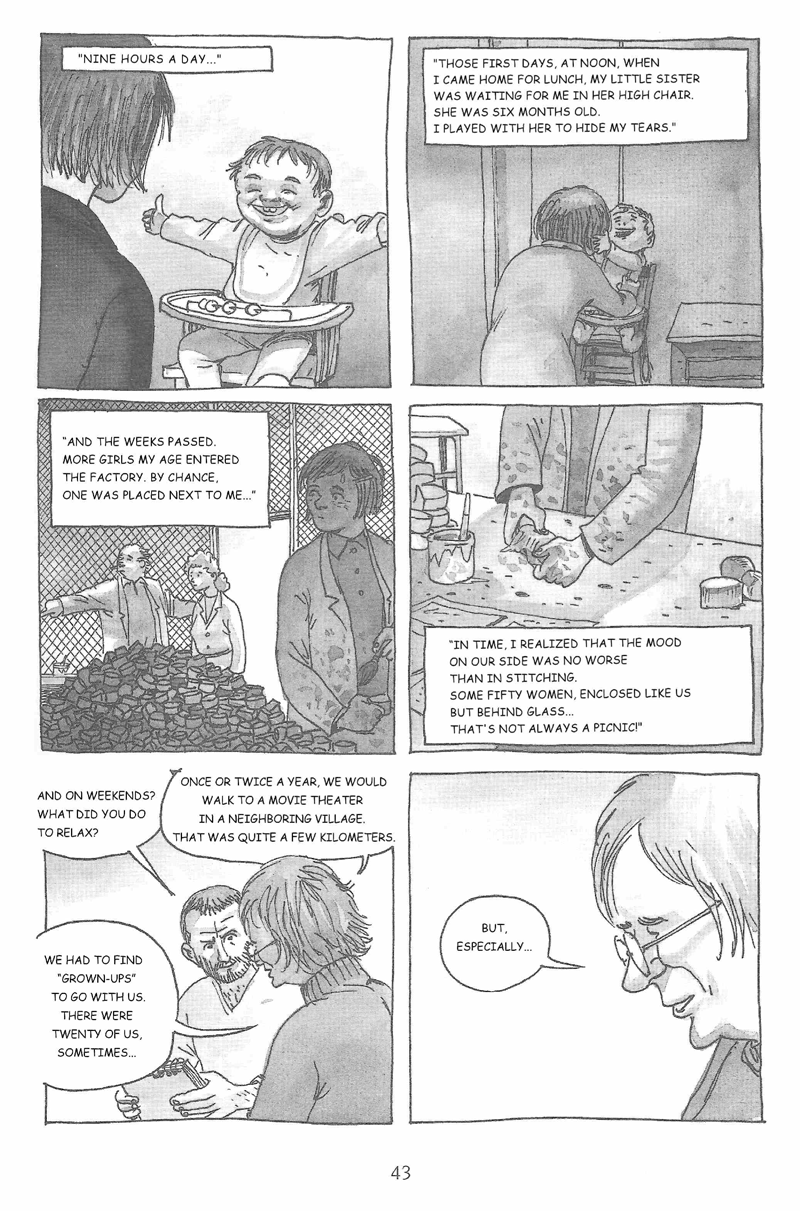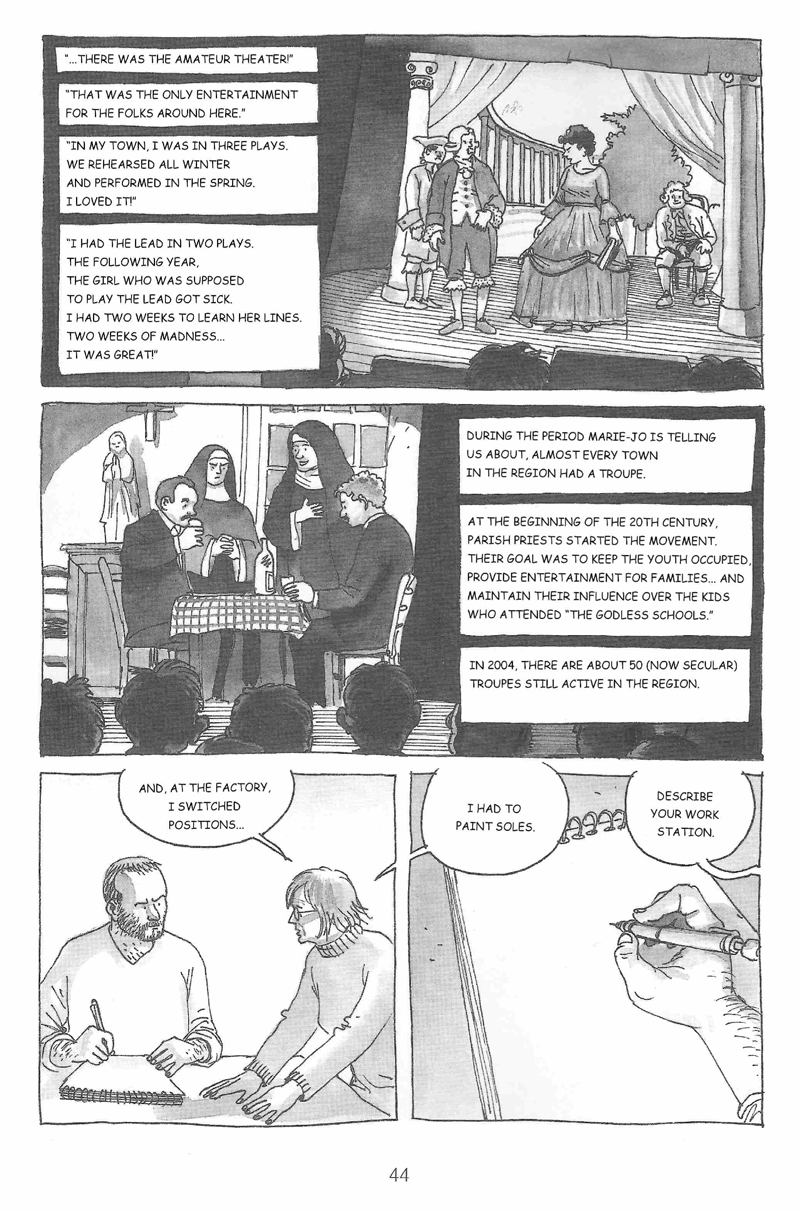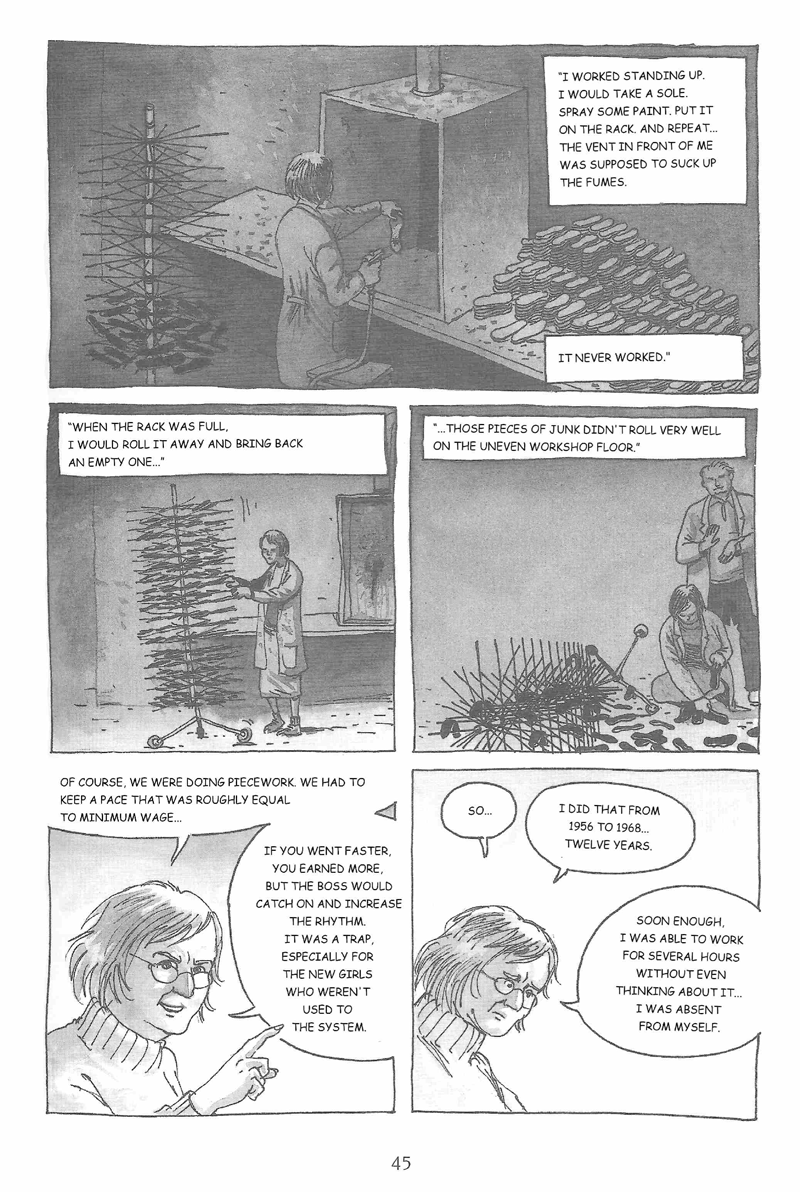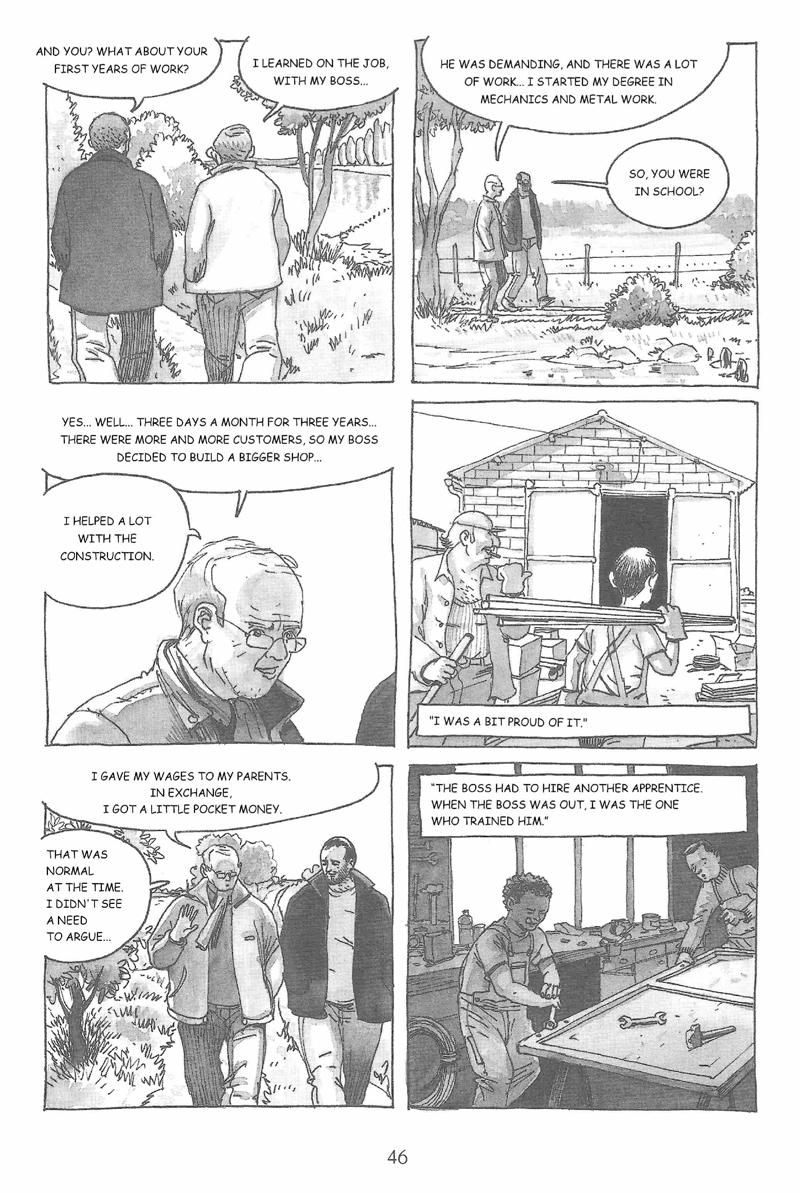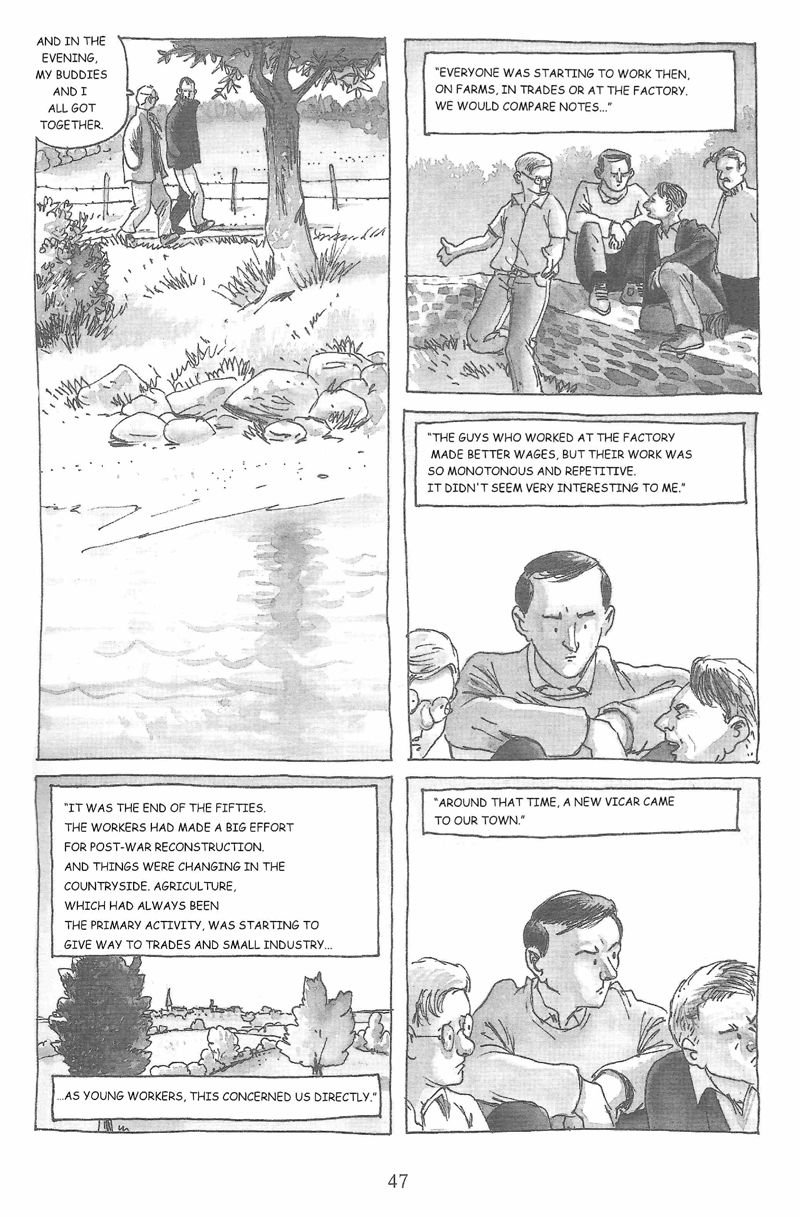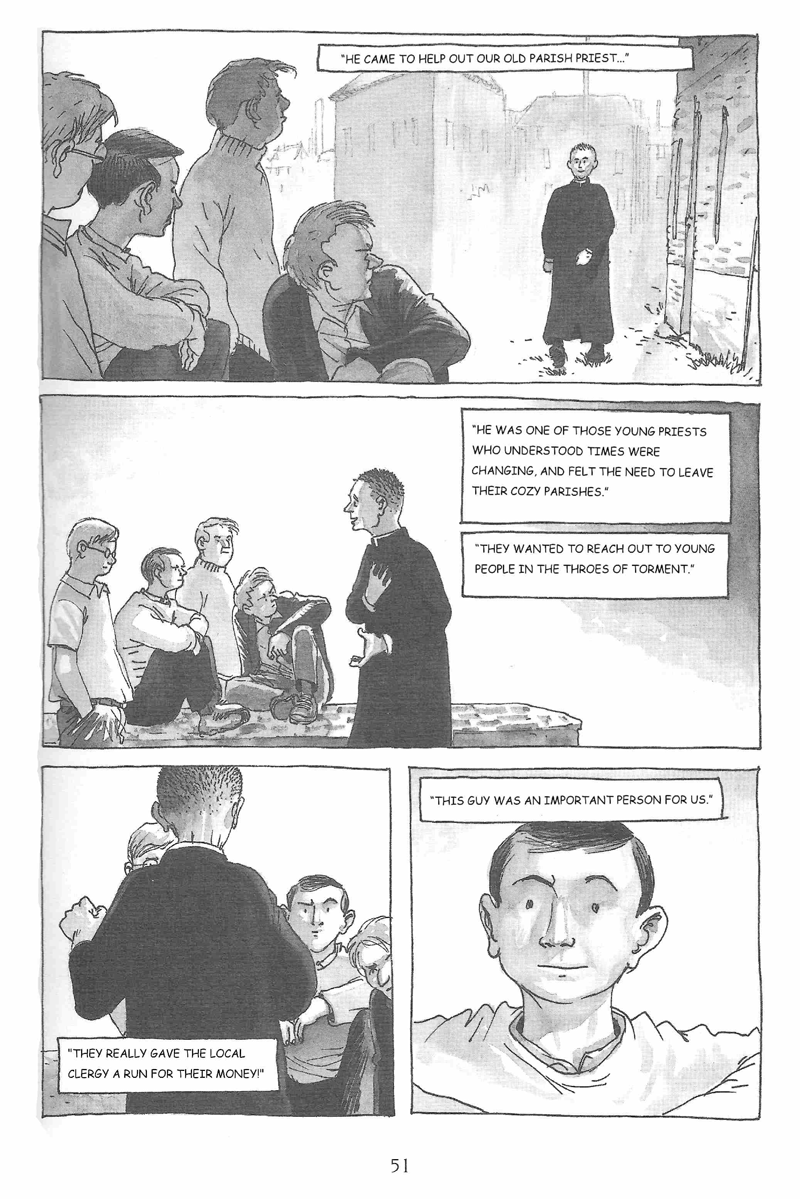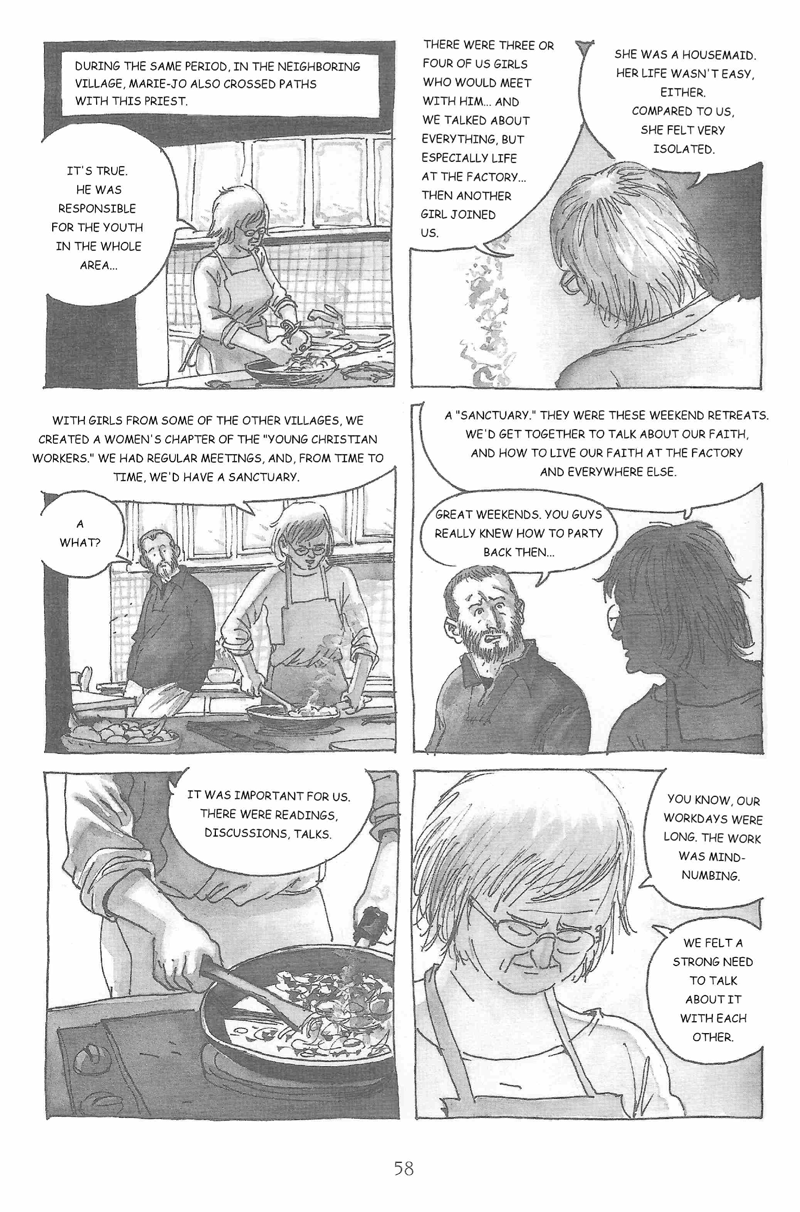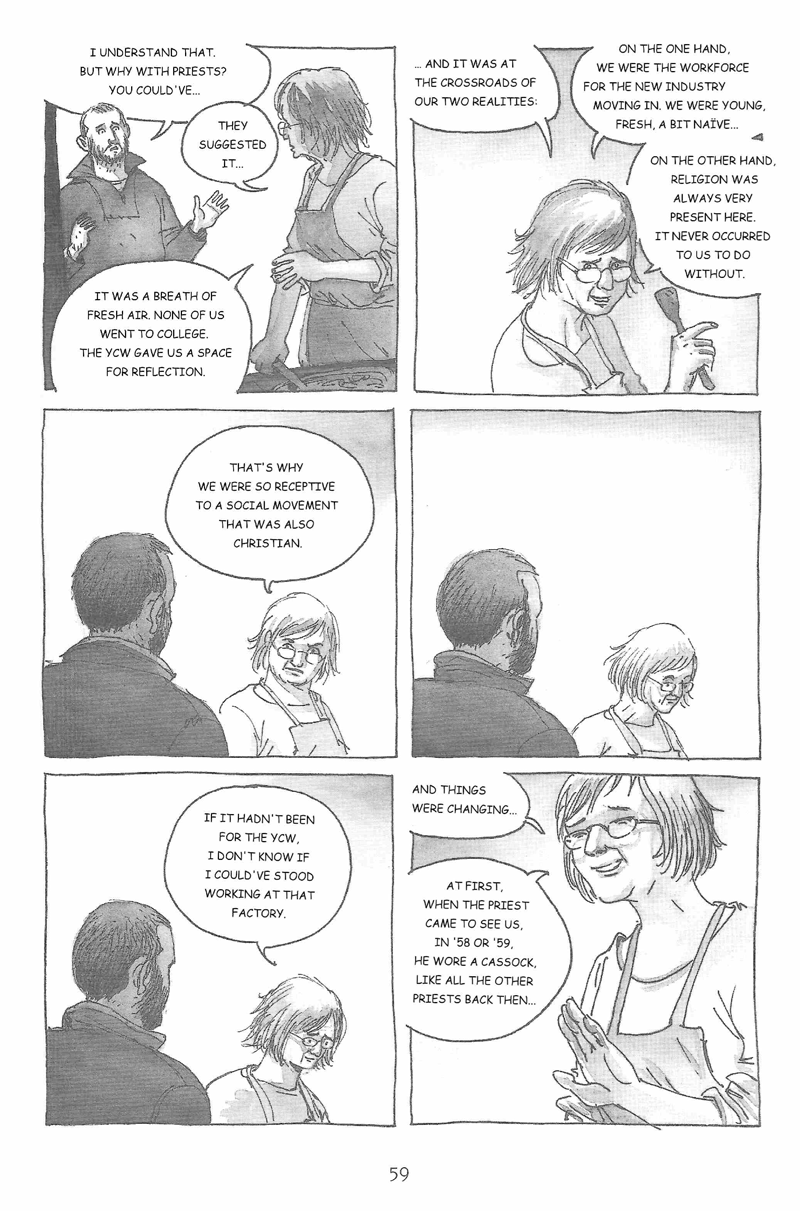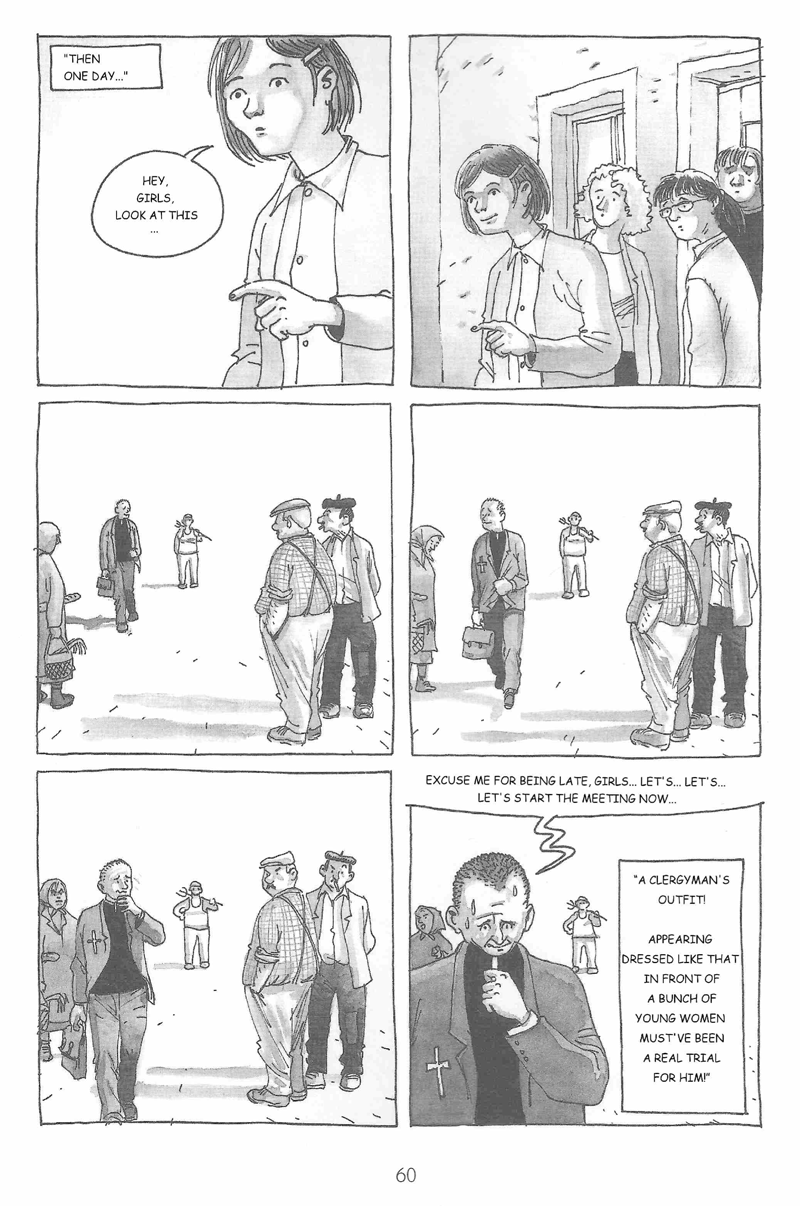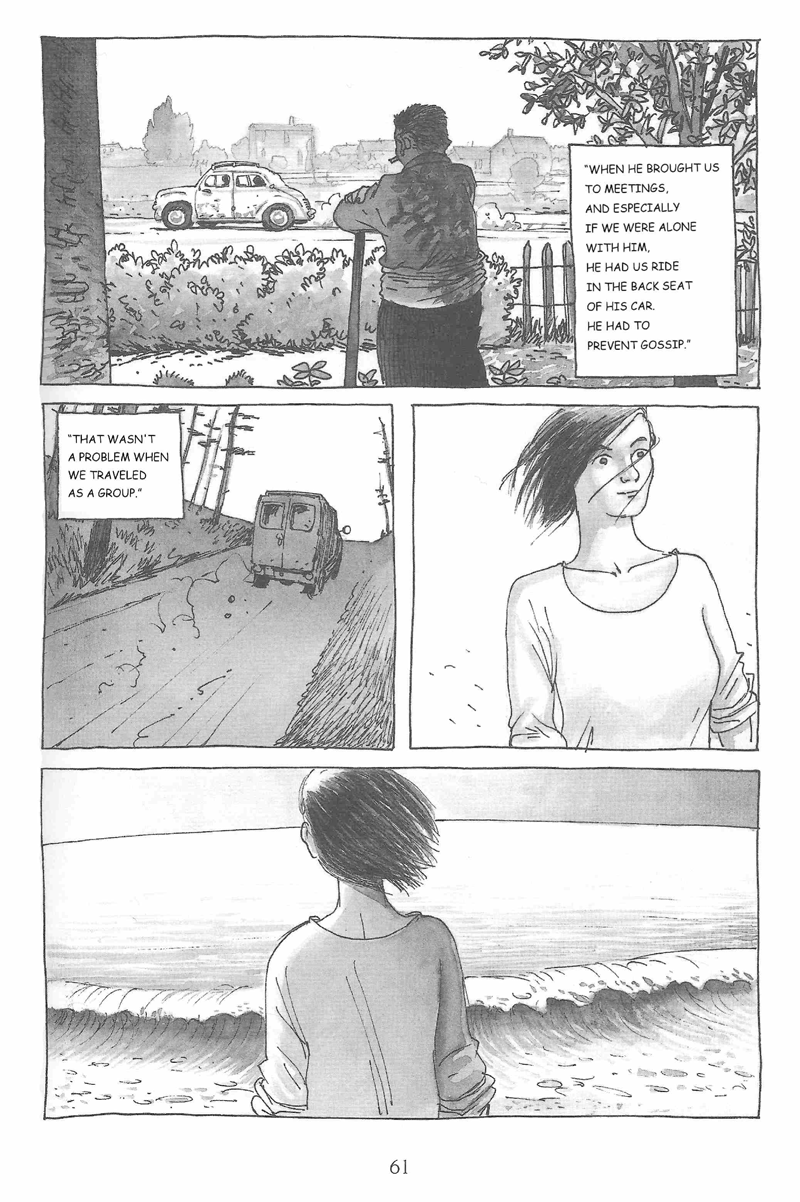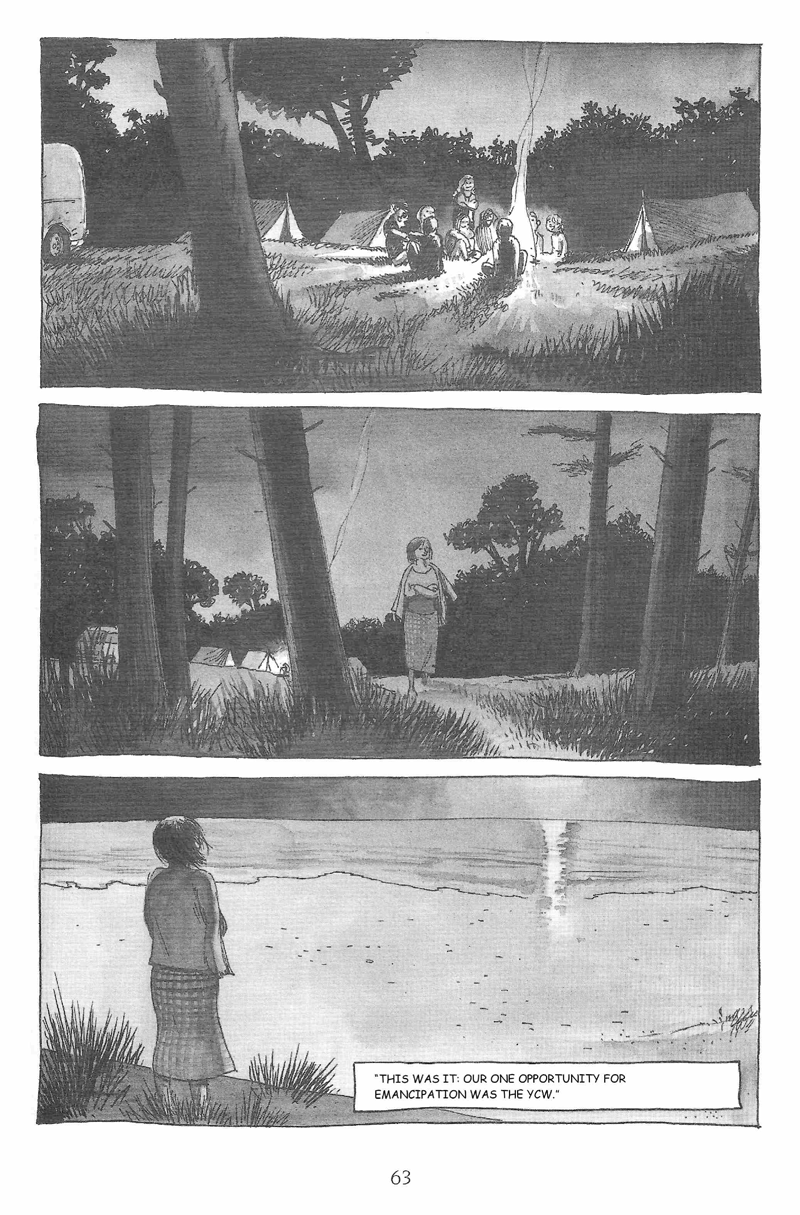Some say that the region in western France called “Les Mauges” derived its name from the words MAUvaises GEns—“mean folk.” The inhabitants of this rural, Catholic, working-class region have long been considered resistant to change and wary of outsiders. When the postwar industrial boom of the 1950s arrived in Les Mauges, hundreds of young people left school to begin their adolescence employed in factories and workshops. Alongside the permeating influence of the Catholic church, it seemed that the factories’ harsh working conditions would define the only reality possible for these young people—until a new priest came to the region to start a chapter of the Young Christian Workers (YCW) organization. With his encouragement, some of these young men and women discovered new horizons as activists and organizers.
Étienne Davodeau’s graphic history of the movement draws heavily on his interviews with surviving YCW members. This excerpt weaves between the past and the present as two Mauges natives tell their stories of entering the workforce: Marie Jo’s jarring catapult from a convent school to a shoe factory, and Maurice’s apprenticeship in a carpenter’s shop. Their first encounters with a YCW priest will spark in them a desire for emancipation, which drives them through the triumphs and difficulties of starting a social movement in a region that for centuries has been resistant to change.
From Les Mauvaises Gens: Une histoire de militants. Published 2005 by Delcourt. By arrangement with the publisher. Translation © 2013 by Mercedes Claire Gilliom. All rights reserved.







